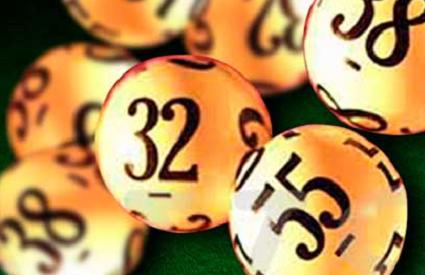How To Play Keno And Keno Rules
Keno is a game that is similar to Lotto.
Although the word "keno" has French or Latin roots [Fr. quine five winning numbers],it was first introduced in China many years ago. It is said that the game originated in ancient China in the Han Dynasty between 205 and 187 B.C. It is even believed that its widespread popularity helped raise funds to build the Great Wall. Finally, it was the Chinese immigrants who came to work in the mines and on the railroad that brought the game to America in the 19th century.
It is a very popular game and is in fact, very easy to play. The fun part is that it is an exciting pastime and most importantly, it offers the possibility of winning large payouts on relatively small wagers.
Now what exactly is this modern version of Keno?
The modern game of keno uses 80 numbered ping-pong balls and every game, the house draws 20 balls at random and displays their numbers on these screens [ called keno boards or Keno monitors ] located throughout the casino.
As Keno is generally played in casinos and there are many television screens placed all around the casino halls to keep players informed.
The object of the game is for the player to guess some of the numbers that the house will draw. The player makes his/ her guesses by marking a Keno ticket, a piece of paper with the numbers 1 through to 80 printed on it. Keno tickets are located at tables throughout the casino but are most readily found in the casino's Keno lounge. The Keno lounge is a room or area with chairs to sit and write with crayons provided for marking the ticket.
You can mark a ticket, anywhere from 1 to 15 (more in some places) numbers. The more numbers you mark the more you have to “catch” to win. In dollar terms, the payoffs for the house percentage is pretty much the same regardless of how many numbers you mark.
But, one of the important factors is that before you go marking a ticket, you must need to decide how much money you intend to gamble on the ticket.
Normally, you are likely to find several copies of the house's Keno brochure, which tells you what the standard bets and payouts. Generally, at any point in time, all casinos tend to have similar betting / payoff scales, but there are times, when there are various "house specials" available.
Now, simply mark a blank Keno ticket with the numbers that you want and present it to the Keno desk with your wager and the clerk will give you a duplicate ticket.
Within minutes, 20 numbered Keno balls will be drawn at random from a barrel containing 80 numbered balls, and if enough of your selected numbers are drawn and the results would be displayed on the screens.
While in some casinos, the minimum bets can be 5 cents, some of them only accept bets of $1 or more. The house's Keno brochures give you information about payoffs and various tickets you can play.
The money you win is dependent upon the type of ticket you play with and the number of 'spots' you catch. There are instances where you could win as much as $50,000 on a $1 wager in some casinos.
There is also the video version of Keno, where there are slots, with coin operated machines and it plays using the same principle with similar rules of the regular Keno, but you get the results much faster. Although, video keno offers the same odds as regular keno, the payoff scale may vary from the casino norm.
A sample game
For example, let's say you decide to play a $1 6-spot. Now what would be the basic rules for it?
You would first find or pick a blank keno ticket, get yourself a crayon and cross out your 6 choices, using a plain X. On the right side of the ticket write "$1" and you would write 6 beneath the “$1” so as to indicate that you are playing a 6-spot. Although this may be not necessary, it is used for cross-checking by the dealer, as well as being important when playing combination tickets.
After having marked your ticket, you then bring it to a dealer [who incidentally is also called a “writer’)] and who is generally situated at the front of the keno lounge. It would look more like a bank with teller windows and a stand in line
Now hand over your ticket and the money to the dealer. The “writer” would make a computer copy of your ticket, and after retaining the original, would return the copy. It is your duty to verify the copy with the original, prior to leaving the dealer window. This is because, just in case of a huge win, the house would have to verify that you did mark those numbers on the original ticket that you had given the “writer”. This also saves as an anti counterfeiting measure as they index and save the original tickets and would search through them if you made a big win.
Once you obtain your tickets, you would have to wait for the rest of the players to buy theirs, until the house declares the game as “closed”. After which, all the original tickets are collected and located in front of a video camera as a security measure. Then, the balls are mixed in the hopper and one of the dealers opens the portals chose the balls. One after another, the dealer calls out the numbers and flicks the switch that makes the number to flash on the keno board.
After the last, i.e., the 20th number is chosen, the dealers return to their stations and the few winners rush in to cash in, while the rest of the pack plan their strategy for the next game.





